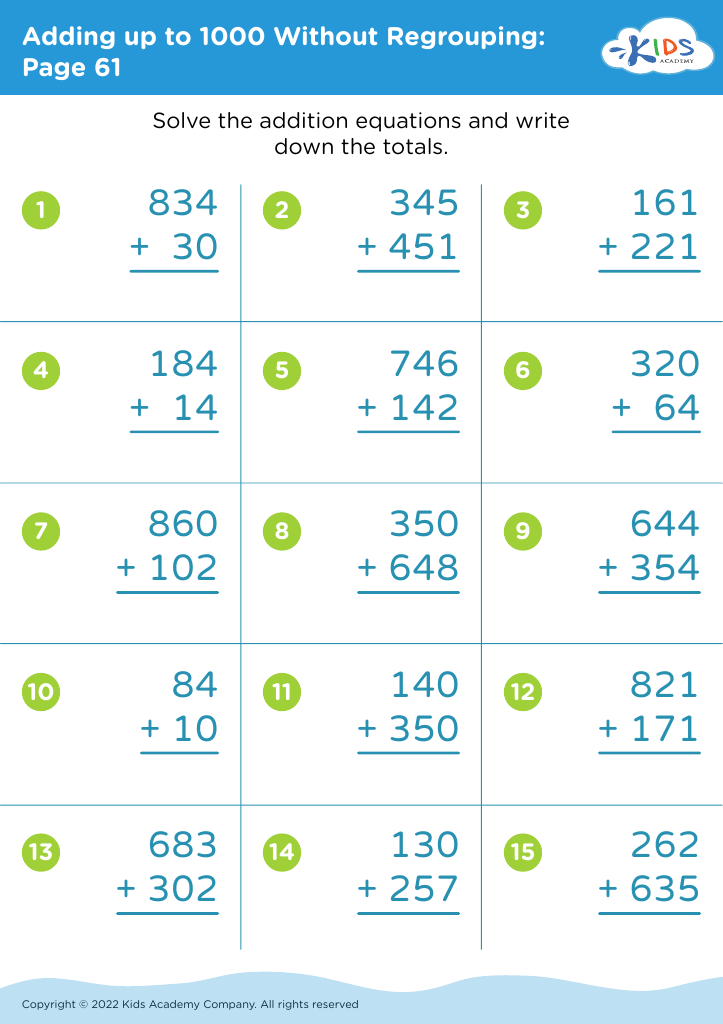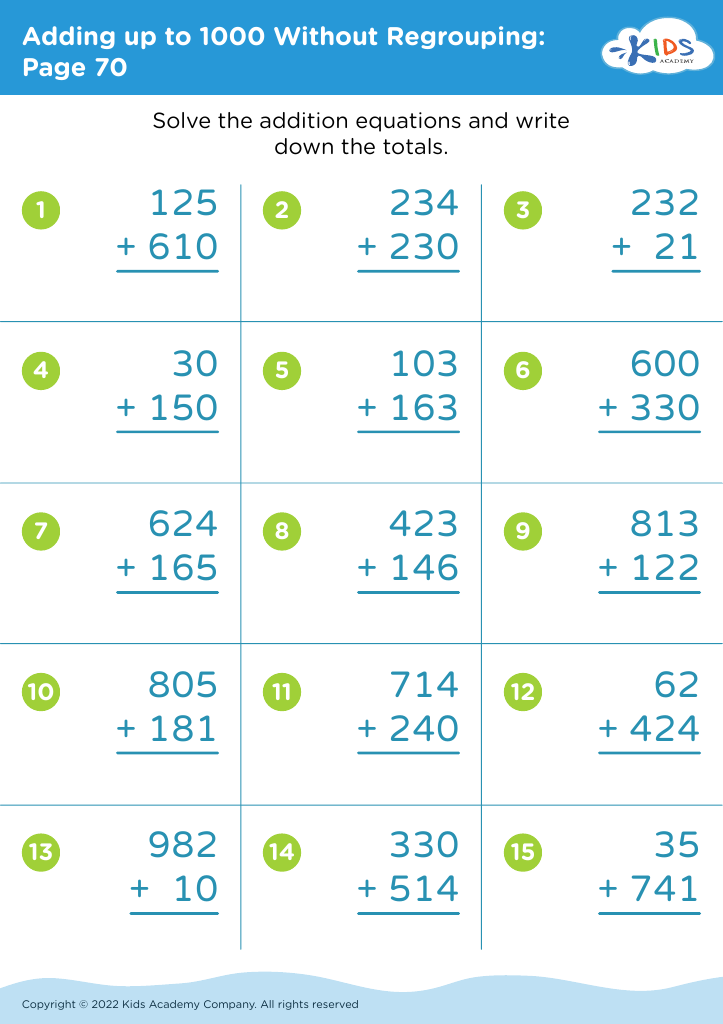Basic Addition Grade 3 Adding up to 1000 Without Regrouping Worksheets
4 filtered results
-
From - To
Welcome to our Basic Addition Grade 3 worksheets designed for young learners to master addition skills up to 1000 without regrouping! These engaging worksheets provide practice in adding two- and three-digit numbers, helping students build a solid foundation in mathematics. Each worksheet is designed with kid-friendly illustrations and clear instructions, ensuring an enjoyable learning experience. Perfect for classroom use or at-home practice, these resources help reinforce essential concepts while boosting confidence in math skills. Encourage your child’s learning journey with our carefully crafted worksheets, and watch them excel in addition! Download now and foster a love for math today!
Basic addition skills, especially adding numbers up to 1000 without regrouping, are crucial for Grade 3 students for several reasons. First, proficiency in these fundamental math concepts lays the foundation for future mathematical learning. As students advance to more complex operations, a strong grasp of basic addition becomes essential. It helps in developing number sense, making it easier for students to understand larger concepts such as place value, multiplication, and even division.
Second, mastering addition promotes confidence in math, which is vital for a child's overall academic self-esteem. When children can successfully add numbers, they feel empowered to tackle more challenging problems, reducing anxiety related to math.
Moreover, basic addition is an essential life skill. Whether managing personal finances, cooking, or shopping, understanding how to add accurately helps students navigate everyday situations efficiently and effectively.
Teachers and parents play a key role in supporting this learning with engaging activities and real-world scenarios. By emphasizing the importance of addition at this stage, they foster a love for math that extends beyond the classroom, enriching the child's cognitive and analytical skills for years to come. Thus, prioritizing basic addition up to 1000 is fundamental for holistic child development in and out of school.













